Public Lecture on the European Integration - Next Level: The Successful Experience of Croatia in Adopting the Euro
The Head of the European Commission /EC/ Representation in Croatia Ognyan Zlatev delivered a public lecture on the European Integration - Next Level: The Successful Experience of Croatia in Adopting the Euro to students of speciality International Economic Relations /IER/.
 |
The event is part of the EU initiative “EU Back to University”.
The Rector of UNWE Prof. Dr. Dimitar Dimitrov introduced the lecturer and opened the event. "Our university regularly holds such public lectures. They are useful for both students and lecturers. We want to encourage students to participate more actively in such events so that they can have an insight beyond the compulsory lectures into what they think about us, about Bulgaria and about the euro at international level. Maybe somewhere among you is a future representative of the European Commission", addressed to students the Rector Prof. Dr. Dimitar Dimitrov and added: "Regarding the euro, I will say that I was in Germany when they adopted the euro, there were no problems, there the prices were initially in marks and in euros and everything was fine. But going beyond strict economic logic and complicated economic explanations, we actually have commitments and if we want Bulgaria to be an equal member of the European Economic Community, we should fulfil them".
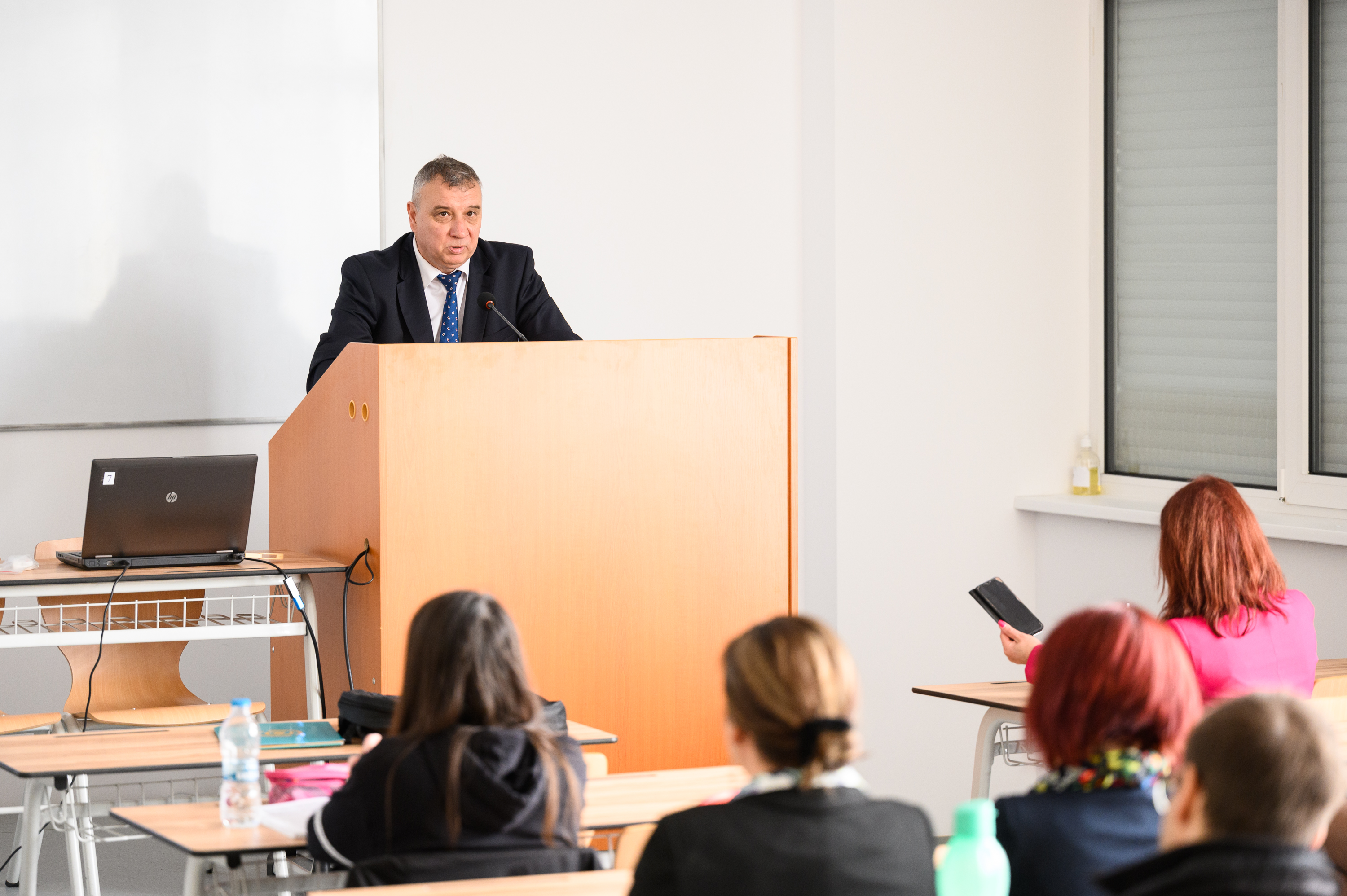 |
"The EU initiative “EU Back to University” used to be called Back to School, but in the recent three years it has been expanded and is now it is called “Back to School - Back to University. "It encourages the officials in the European institutions to go back to their country, to their school or similar institution at the appropriate time, to meet young people and tell them about their work and what Europe does for their country", said Ognyan Zlatev and underlined that he chose to present the successful experience of Croatia in adopting the euro because he believes that the topic is close to all Bulgarians and because for a long time there has been a debate in the public space “for” and “against” Bulgaria's accession to the euro.
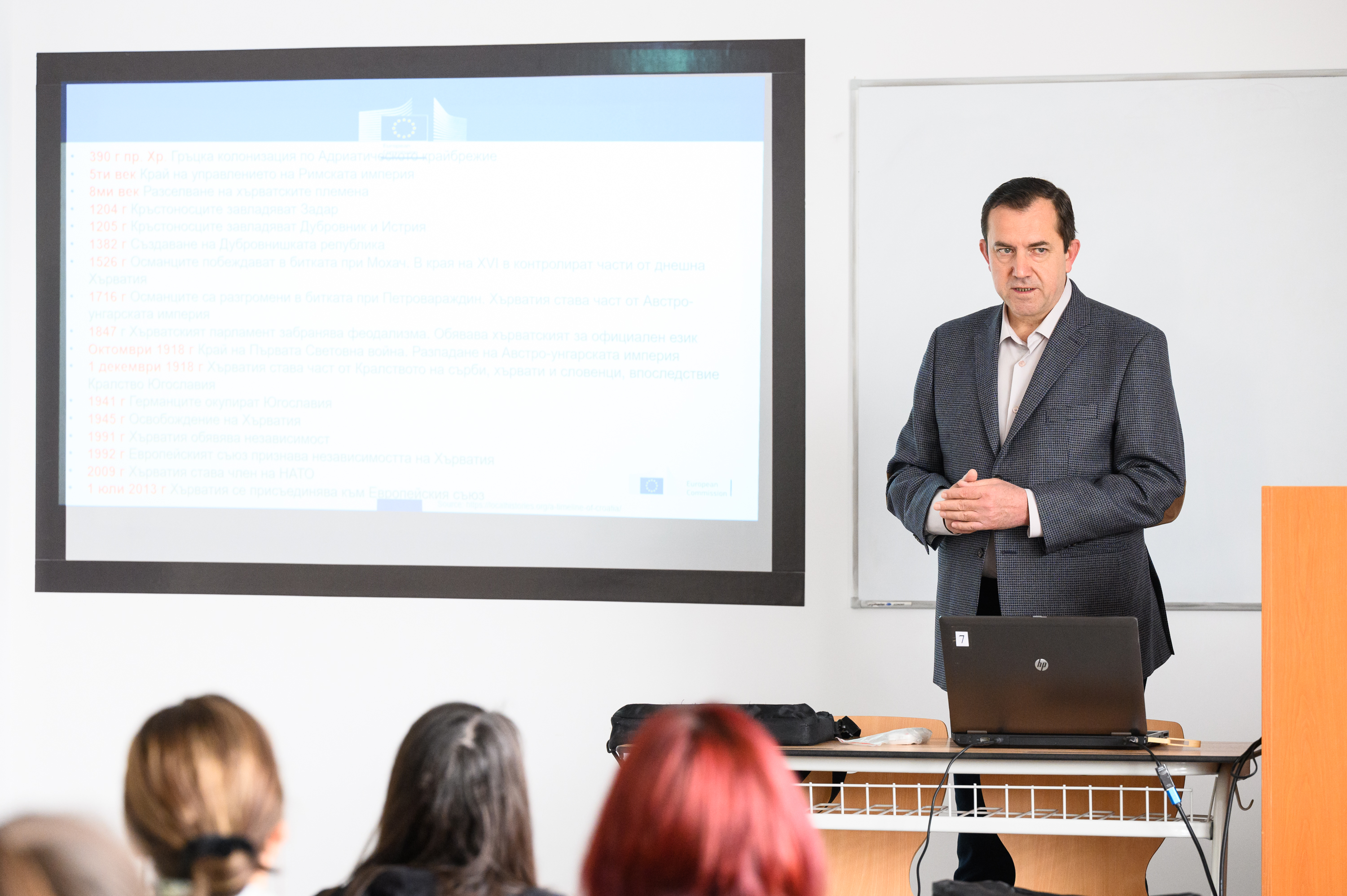 |
At the beginning of the lecture Ognyan Zlatev presented Croatia and the main aspects of its development in historical perspective. He traced the stages of country's accession to the euro area by years and pointed out that immediately before adopting the euro Croatia faced a number of challenges. Apart from the COVID-19 pandemic and the global inflation that followed, the country also experienced two earthquakes but managed to overcome the problems and on 1 January 2023 introduced the euro as the official currency.
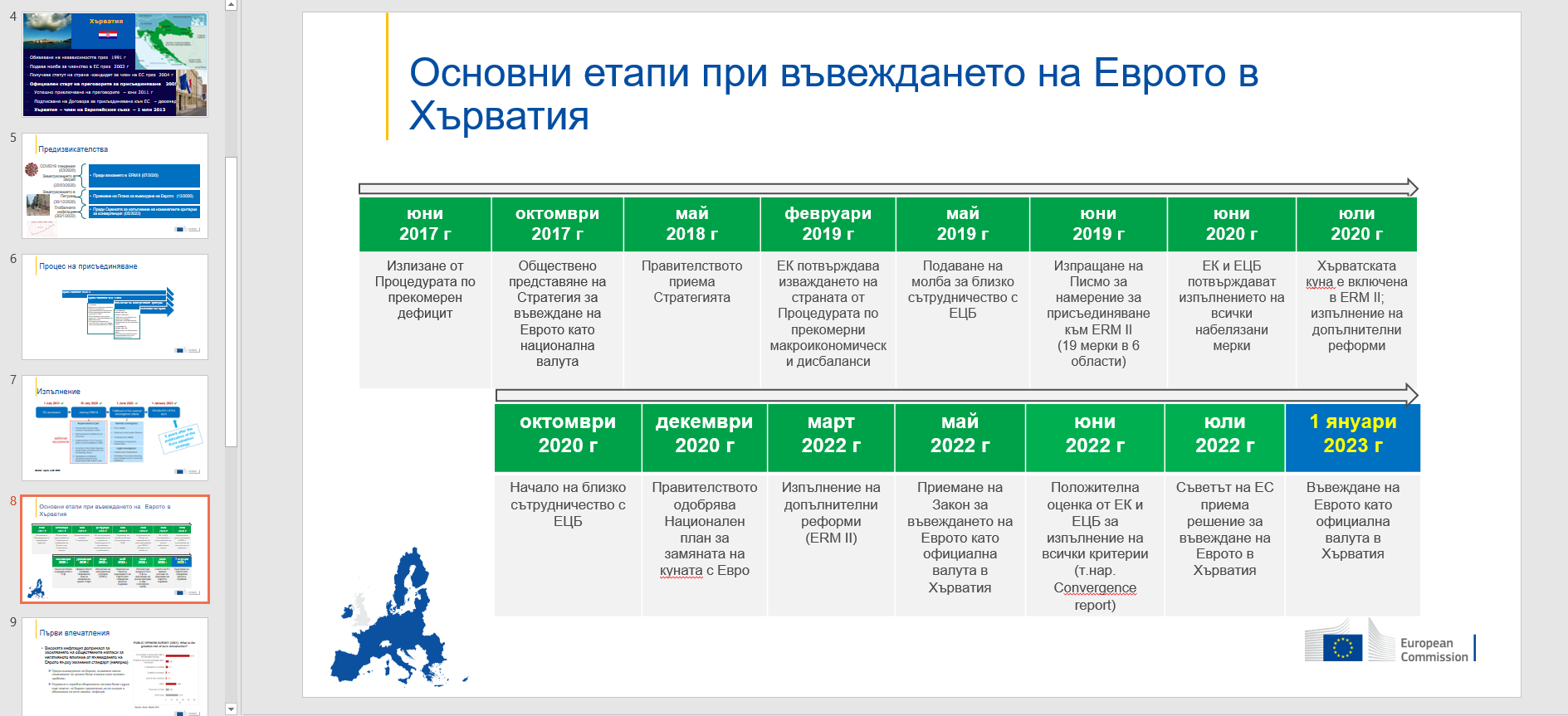 |
The lecturer pointed out that in Croatia before the introduction of the euro, the possible strong price increase was considered a major problem and dealing with such a public attitude was difficult. However, the state is conduct a very good communication campaign among the population and it gives results.
"In my role as a citizen and consumer of various goods and services I can say that it is extremely important the authorities to explain and communicate on what comes and what people can expect by the changeover from the national currency to the euro", emphasized Ognian Zlatev. He commented that the impact on price levels in Croatia was comparable to the experience with the adoption of the euro in other member-states.
Croatia is the only EU member state that adopted the euro in a period of very high inflation. However, the estimated impact on prices is within 0.4% - fully comparable to the levels in other member-states that have adopted the euro in a low inflation environment.
 |
The lecturer outlined that the truth regarding the price increase of some goods in Croatia in the first days of 2023 is that there are always players on the market who are unscrupulous and added that there was a case with the so-called Code of Ethics on the part of traders where it was written that they should not take advantage of the adoption of the euro to change prices upwards unjustifiably.
In the first week after the adoption of the euro the authorities have issued a warning to unscrupulous traders that massive checks will be carried out and serious fines will be imposed if speculative increases are proven. Many of those traders have returned the actual prices and those who have not have been fined.
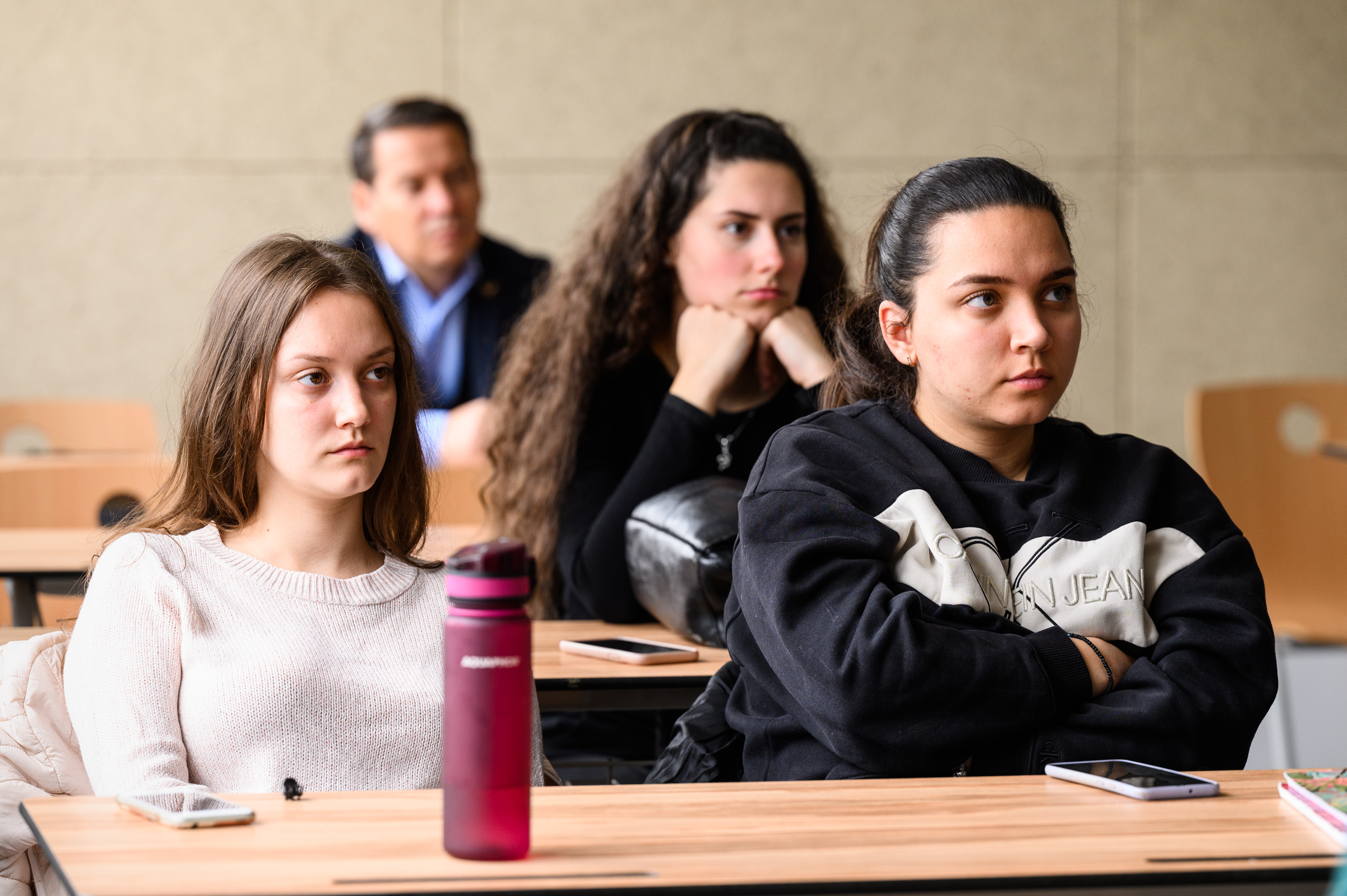 |
"Croatia managed to achieve the unique - simultaneous entry into the euro area and the Schengen area as the process of adopting the euro required much more efforts.
The euro brings significant and permanent economic benefits, especially to the smaller EU member-states - lower exposure to risks, higher resilience to crises, high cost-efficiency and more favourable access to finance. I would be very happy if Bulgaria could also join the euro area in 2025. The European Commission is ready to help at any moment with all the resources at its disposal but we also need the people who govern the country to work actively and together in this direction", emphasized the Mr. Zlatev.
Before the lecture Ognyan Zlatev met with the Rector of UNWE Prof. Dr. Dimitar Dimitrov.
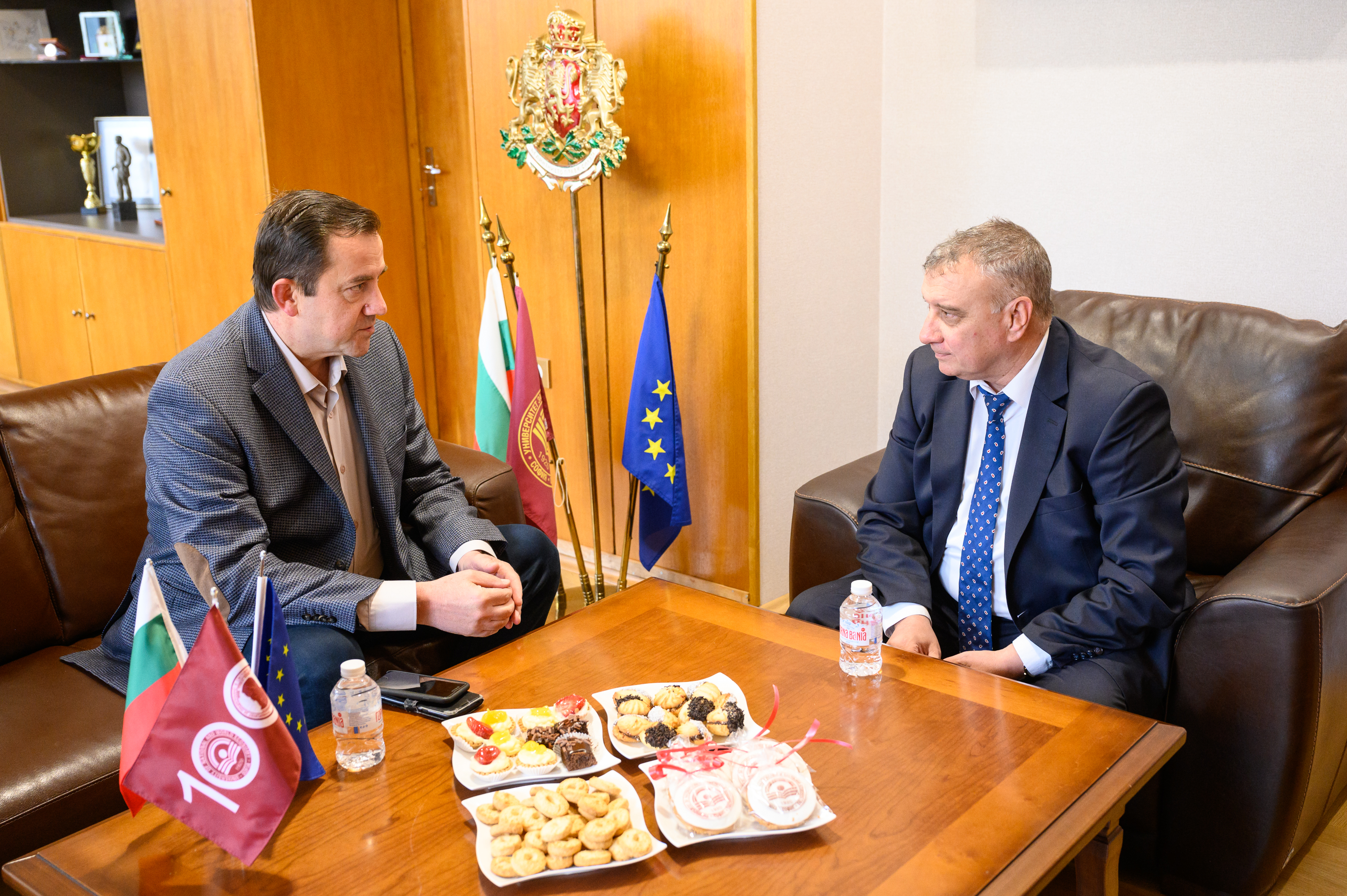 |
Ognyan Zlatev is a highly qualified expert in the field of communications with nearly 30 years of professional experience. He has been working for the European Commission since 2011 as Head of the Communications Unit in the Directorate General for Employment, Social Affairs and Inclusion. He has significant experience in the field of communications, media development and NGO management. In 2013, he was appointed as Director of the European Commission. In 2013 Ognian Zlatev headed the European Commission Representation in Sofia and in 2019 he became Head of the European Commission Representation in Croatia.